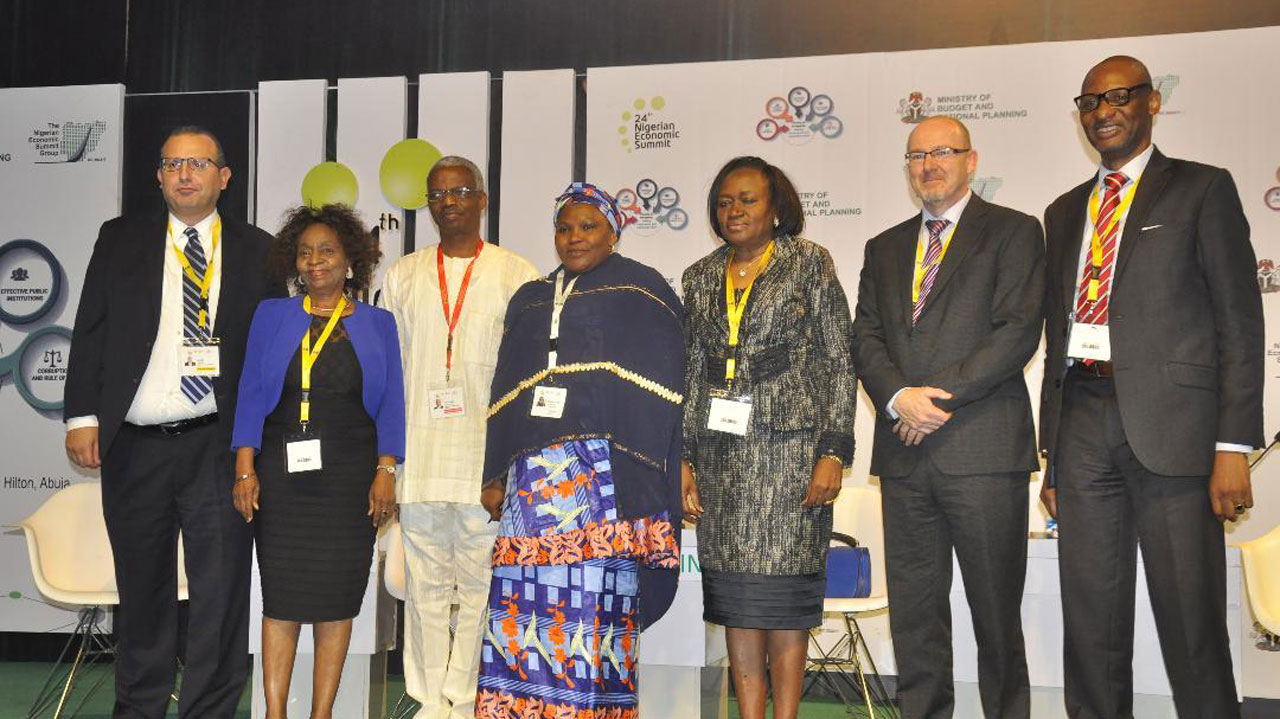
The need for the government to build a strong revenue base for sustainable development formed the thrust of the roundtable discussion at the just concluded Economic Summit in Abuja.
The discussion was necessitated by the realisation that Nigeria’s revenues have remained consistently low and overly dependent on the oil sector that has grossly affected the country’s ability to execute developmental programmes as well as fund critical projects in major social sectors like health, education and infrastructure.
With the theme, “Leveraging Domestic Resource Mobilisation for Sustainable Development”, the session, hosted by the Fiscal Policy Commission, brought together experts in the financial sectors, to identify Nigeria’s revenue potentials beyond oil.
The development, they lamented, has predisposed the country to vulnerabilities associated with macro-economic shocks.
The Chairman of the roundtable and former Deputy Governor, Economic Policy, Central Bank of Nigeria, Dr.Sarah Alade, highlighted the need to boost the country’s revenues beyond oil.
According to her, the glaring low income generation and falling international support for developing countries called for innovative thinking on how to leverage on domestic resource mobilisation for economic development.
She attributed the failure to meet the 2015 Millennium Development Goals to lack of finance to implement millennium programmes and expressed the need to resort to domestic revenue drive for economic development.
She said: “In fact, the inability of many developing countries to meet the objectives of Millennium Development Goals by 2015, was attributed to lack of finance to execute the programmes.
“Oversea assistance and loans will still be inadequate to finance Millennium Development Goals. It is in this context that it has become apparent that resort to domestic resource mobilisation must be intensified.
“At the end of the gathering, we must not only be able to identify traditional sources of funding of developmental programmes, but also propose innovative approaches to mobilising domestic resources for development.”
The International Monetary Fund (IMF) representative, Amine Mati, decried Nigeria’s low Valued Added Tax (VAT) policy.
Noting that Nigeria does not have a modern consumption VAT, he stressed that current design disallows input tax credit on capital goods and services, consequently, suggesting either outright withdrawal of exemptions or granting of a few, very well-targeted exemptions.
“Revise tax design to allow input tax credits for intermediary inputs and capital expenditures to limit tax cascading effect; single VAT rate with a zero-rate applied to exports, as well as elimination of registration threshold to ensure that all companies and persons that make supplies of goods and services are subject to VAT,” he said.
Speaking on VAT policy, he maintained that at five per cent, Nigeria pays one of the lowest VAT rates internationally, bringing VAT revenues in the country to an average of 0.8 per cent of GDP, saying it was notably smaller than the 3.8 percent of GDP collected by ECOWAS peers.
While advocating increase in VAT to 10 per cent, he also believed that increase in compliance of the extant rate from its present 25 to 60 per cent could double current revenue collection.
“International experience showed that one percentage point increase in the VAT rate raises VAT revenue by 0.4 percent of GDP, but effect is much lower if current system of no refund is maintained.
“Low tax collection rates are a direct reflection of perception of weak service delivery by taxpayers and weaknesses in revenue administration,” he noted.
Some of the militating factors in increased tax revenue, according to Mati, include low active taxpayer population, inaccurate taxpayer registration database, under-developed compliance risk management methods, as well as absence of large-scale automated crosschecking of information from third party sources against taxpayer declarations.



